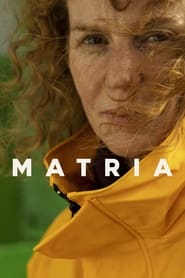Seattle International Film Festival 2023: Film #20
In the first five or ten minutes, Ramona's plucky resolve and 'she gives as good as she gets' demeanour reads as sassy, empowering and feminist in a sort of Rosie the Riveter way, but it slowly becomes clear that it is also something of a disguise for her. We quickly get lost counting how many jobs she actually has, too. Was it three or four? It's almost exhausting to watch: at least Jeanne Dielman had the time to make herself some coffee. We get at some of what might be under Ramona's mask in the opening act, where through the modern magic of management bringing in an outsourcing company, Ramona and her colleagues will be offered the choice—nay, the opportunity!—to re-apply for their current jobs at a lower wage.
But what else is driving Ramona? For it is clear that there is something else going on in her life that means that she is driven to get a new job as soon as possible. It struck me as something more than a purely financial incentive, not least of all because those who are desperate for a job tend to adopt an essential ego-saving mode where one does not invest emotionally in the outcome of the hunt for a new position, a posture that is easy to conform to given the ambient levels of mental health within the unemployed. As expected, Ramona is serially humiliated and insulted by the types and forms of her rejections… as she rightly should be.
We learn more about Ramona's inner drive in the second act, not only through her semi-estrangement with her daughter but moreover when she visits a local town with Mr Pepe. It is only here that we realise that Ramona is truly alone in her town. In this other town, and on this bench, surrounded by happy shoppers that do not share (and might not even comprehend) her worries, do we see both Ramona's social alienation and that her spunky energy is a highly-adapted and entirely reasonable psychological defence mechanism.
At the same time, we start to notice that Ramona's habits and initially justified demeanour can now be harmful to herself. This is not only does she keep others at arm's length whilst lamenting when they keep a distance from her in return, we come to understand that Ramona has ingrained a kind of co-dependent personality; Ramona is constantly puts herself into positions of giving 150% such that even a dog that belongs to someone else quickly depends on her to fulfil their basic needs, with any form of 'thank-you', let alone adequate financial compensation, always being punted to another day.
And so Matria comes into view into an extended portrait of Ramona's life and the lack of genuine connection to her family and friends. Even her closest companions do not really respond to her WhatsApp messages, and when she meets up with Carmen, they can only seem to get drunk and never truly communicate with one another.
Within its overwhelmingly authentic-feeling portrait of Ramona that brings to mind the Franco-Belgian films of the Dardenne brothers, though, it's easy to miss what Matria might get wrong. I can think of two primary things. Firstly, the canning company would never have called an in-person meeting to announce their new fire-and-rehire scheme; as anyone who has been through such a process will tell you, they would simply declare it as a fait accompli via an impersonal email. Secondly, the film later portrays Ramana bullying the low-level staff at a mobile phone company, who are likely forced to follow dehumanising corporate policies or lose their own precarious jobs. I feel like the genuine Ramona would have actually identified with—and not have berated—one of her fellow service workers. To be sure, this is not the appallingly unfunny example of 'punching down' from Planes, Trains and Automobiles (1987), but this one of the few examples from Ramona's life that did not quite feel entirely authentic to me.
Still, like like any elongated picture of a life made into narrative cinema, the viewer will always be expecting something from the film's conclusion. The 'personal study' form is intrinsically stuck between the Charybdis of simply ending in media res by jumping to the credits and the Scylla of an unconvincing catharsis of, say, the protagonist winning the lottery. To be sure, it is not the job or goal of Matria to reconfigure a few millennia of Western cultural surrounding tidy narrative arcs, but the ending does land as something of an anti-climax, even if it is a somewhat enigmatic one.

